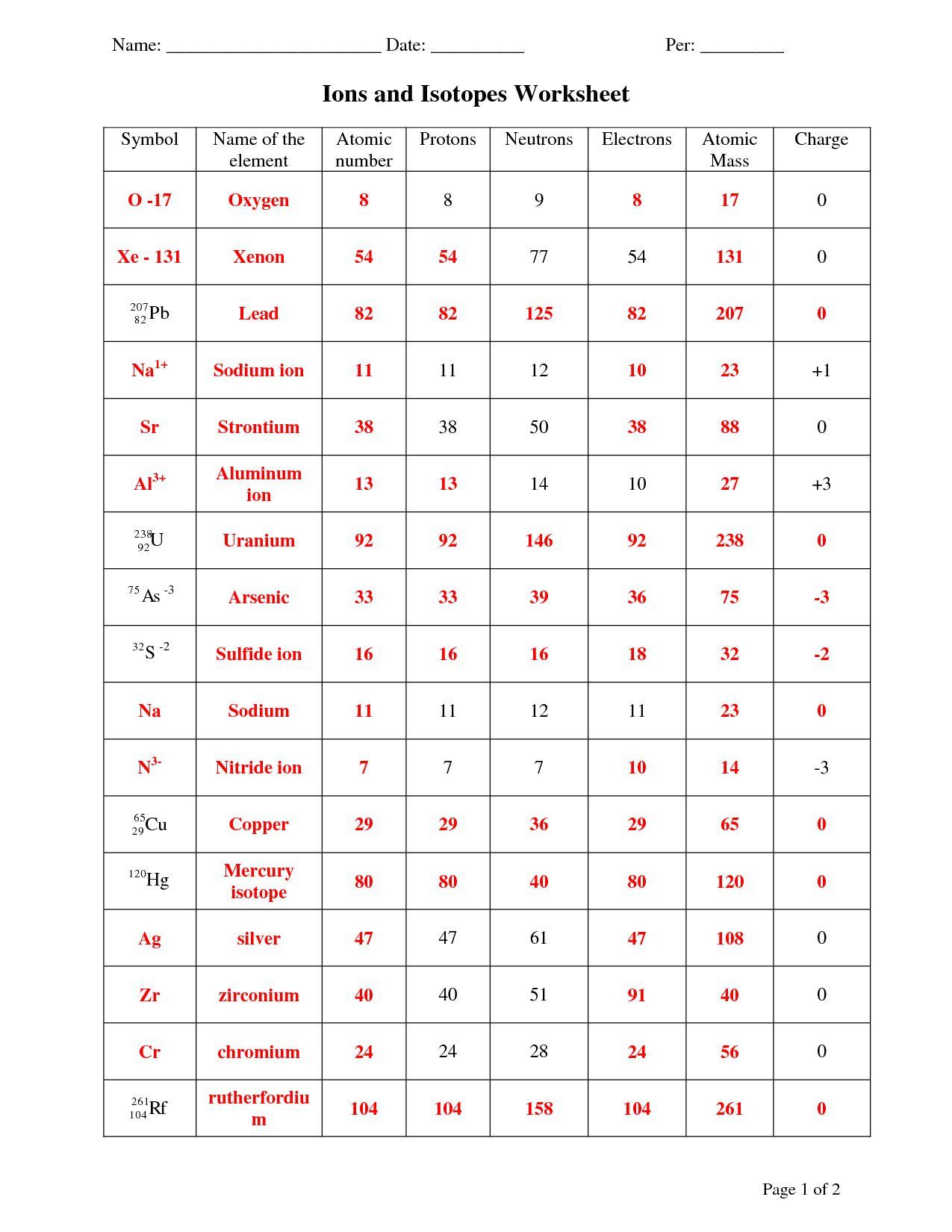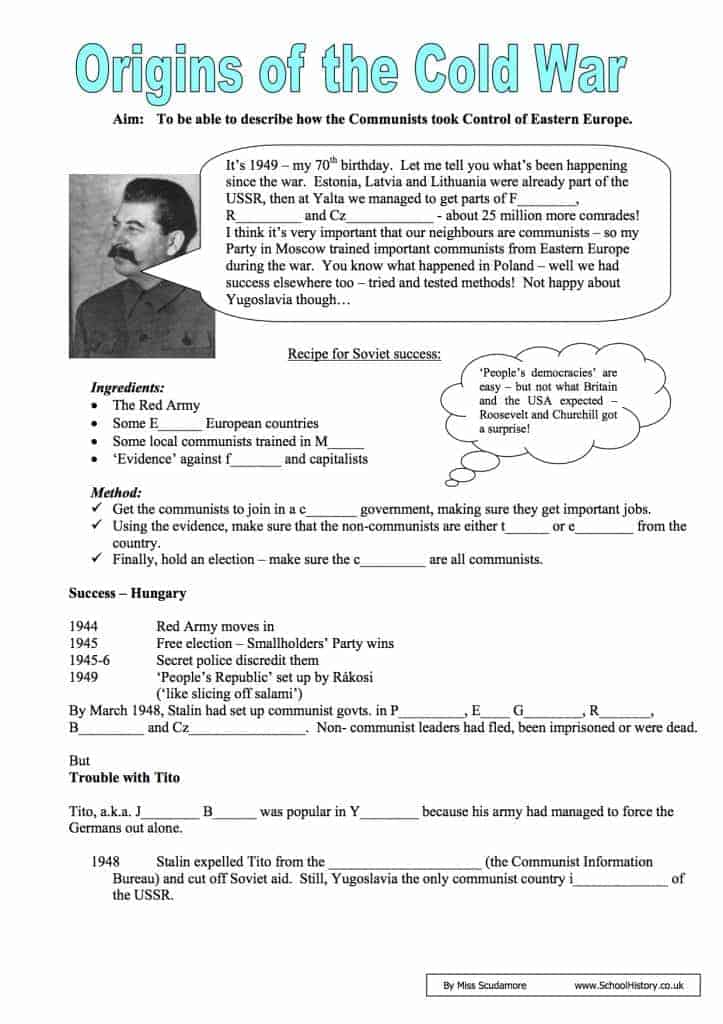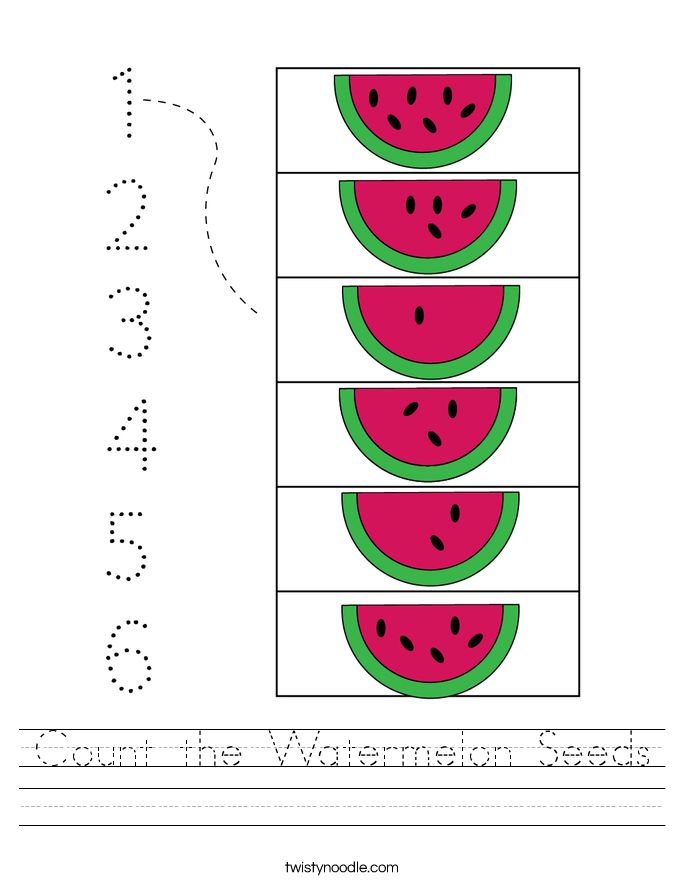5 Essential Worksheets for Managing Bipolar Disorder
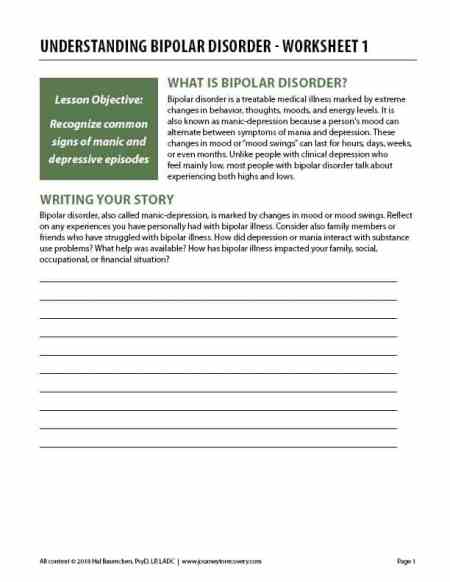
Managing bipolar disorder requires a multifaceted approach, where the right tools can make all the difference in your journey towards stability and well-being. Bipolar disorder, characterized by its mood swings between manic highs and depressive lows, affects individuals in various ways, making personalized management strategies essential. One effective method involves the use of worksheets, which serve not only as tools for self-awareness but also as means for communicating with mental health professionals. Here, we delve into five essential worksheets that can aid in managing bipolar disorder, ensuring each one targets different aspects of the condition.
1. Mood Tracking Worksheet

The Mood Tracking Worksheet is a fundamental tool for anyone with bipolar disorder. It enables you to document daily mood variations, providing a clearer picture of your emotional patterns. Here's how it can help:
- Pattern Identification: By logging your mood daily or even multiple times a day, you can start identifying triggers and patterns. This insight can lead to better mood management.
- Feedback for Professionals: Your tracked mood can serve as valuable data for therapists or psychiatrists to adjust your treatment plan.
- Progress Tracking: Over time, the worksheet can help you see your progress, making it an encouraging tool during the journey.
| Date | Mood Scale (1-10) | Notes |
|---|---|---|
| Jan 1, 2023 | 7 | Felt happy, had a good sleep. |
| Jan 2, 2023 | 3 | Anxiety spiked after a stressful day at work. |

📝 Note: Ensure to set a regular time for tracking your mood to maintain consistency in your records.
2. Sleep Diary
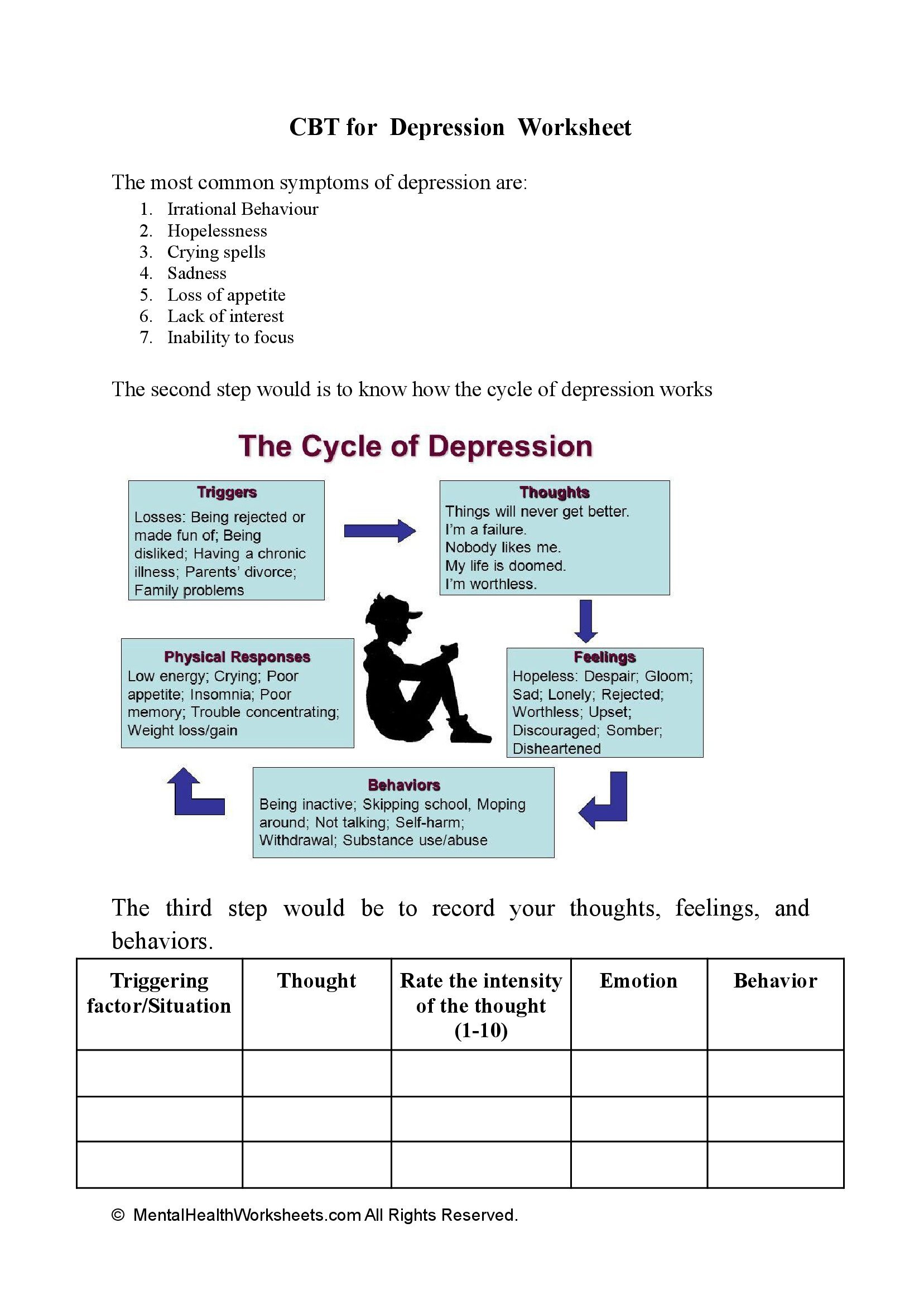
Sleep is an integral part of mental health, especially for individuals with bipolar disorder. A sleep diary helps:
- Identify Sleep Patterns: Recognize whether you have irregular sleep patterns that could be contributing to your mood swings.
- Improve Sleep Hygiene: By tracking sleep, you can work towards better sleep practices which can stabilize mood.
- Feedback for Treatment: Your sleep patterns can inform treatment decisions, especially regarding medication adjustments.
3. Medication Log

Adhering to a medication schedule can be challenging, but it's critical for managing bipolar disorder. A Medication Log helps by:
- Ensuring Compliance: Keeping track of which medications you've taken and when helps ensure you do not miss doses.
- Tracking Side Effects: Documenting side effects can assist in discussing any necessary changes with your healthcare provider.
- Identifying Interactions: By logging when you start or stop medications, you can observe how they interact with your mood or other treatments.
4. Thought Challenging Worksheet
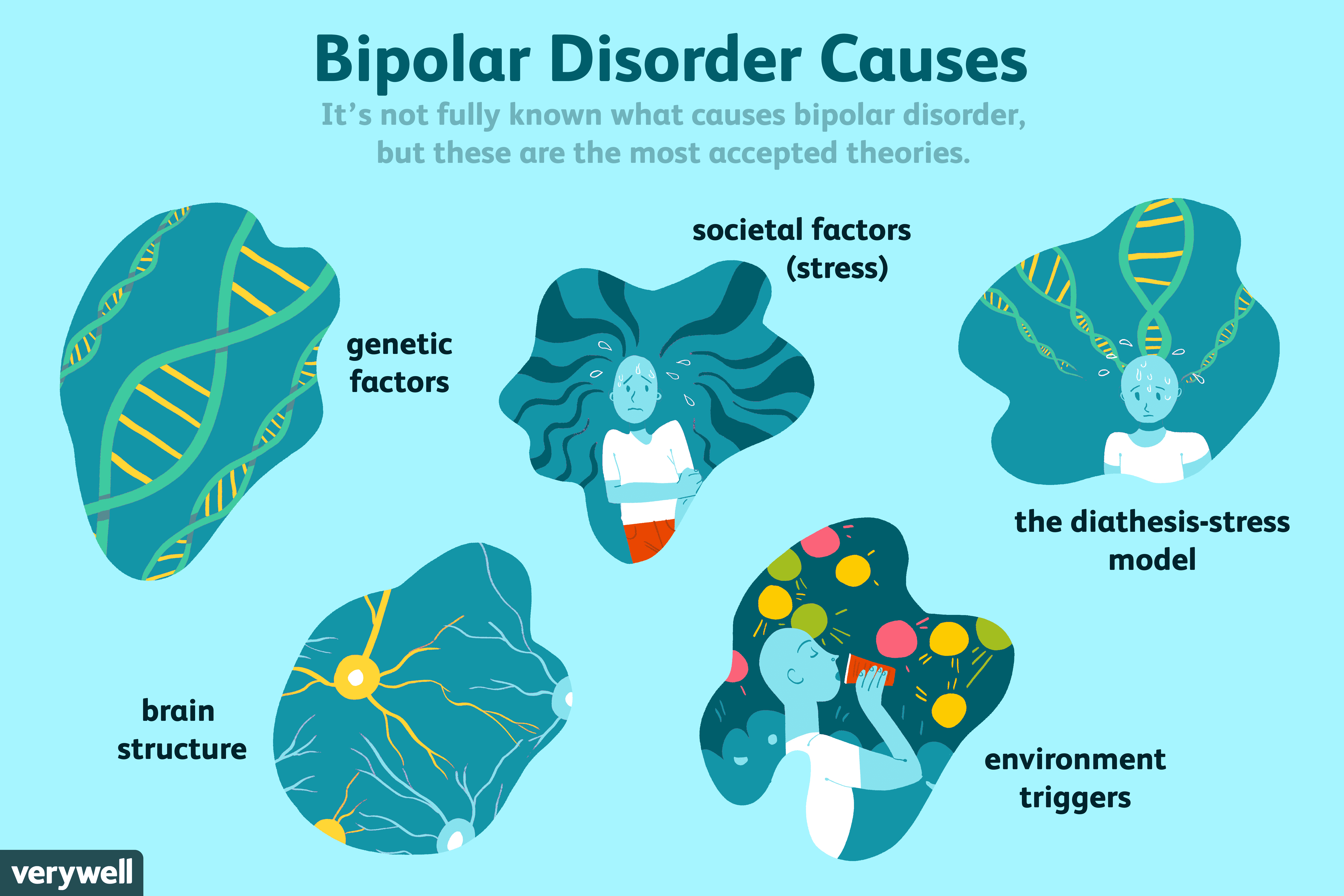
Bipolar disorder often involves distorted thinking patterns. The Thought Challenging Worksheet is designed to:
- Break Negative Thought Cycles: By identifying and challenging irrational thoughts, you can reduce the emotional impact of these thoughts.
- Promote Rational Thinking: Encourages replacing automatic negative thoughts with more balanced, evidence-based thinking.
- Enhance Cognitive Therapy: Provides a concrete way to apply Cognitive Behavioral Therapy (CBT) techniques.
5. Coping Strategies Worksheet

This worksheet focuses on developing and tracking effective coping strategies for dealing with manic or depressive episodes. It:
- Documents Coping Mechanisms: Helps you record what works and what doesn't in managing your symptoms.
- Prepares for Future Episodes: Knowing what coping strategies have worked in the past prepares you for potential future episodes.
- Creates a Toolkit: Over time, this worksheet forms a personalized toolkit of coping strategies tailored to your needs.
The journey towards managing bipolar disorder is unique for each individual. However, these five worksheets offer a structured approach that can help in monitoring and understanding your mood, sleep, medication, thought patterns, and coping strategies. They serve as valuable tools for self-management and communication with your mental health team. Implementing these worksheets can empower you to take an active role in your recovery, potentially leading to a more balanced and fulfilling life.
How often should I use these worksheets?
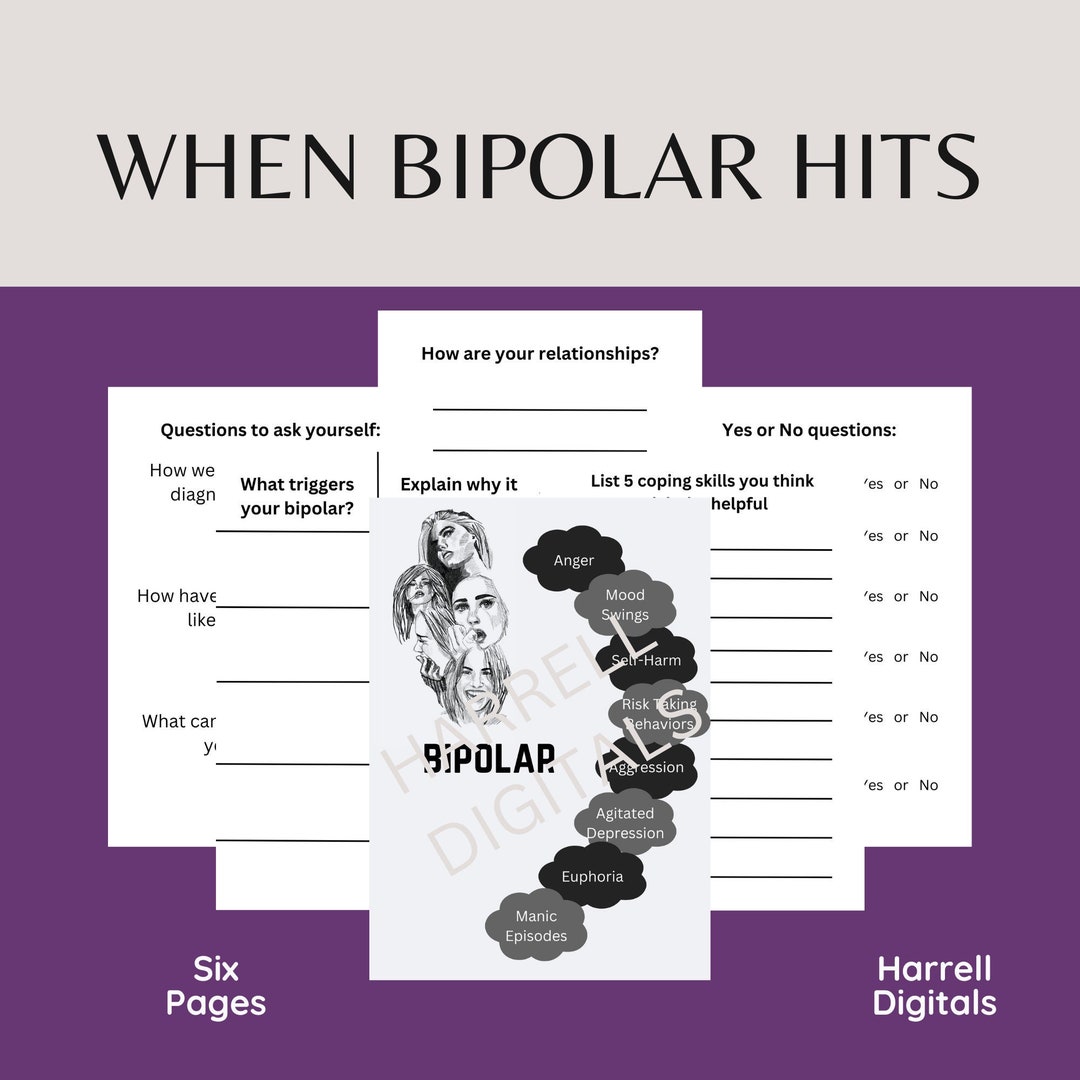
+
It’s advisable to use them daily or at least consistently to capture accurate patterns over time. Adjust as necessary based on your progress or changes in your condition.
Can I share these worksheets with my therapist?
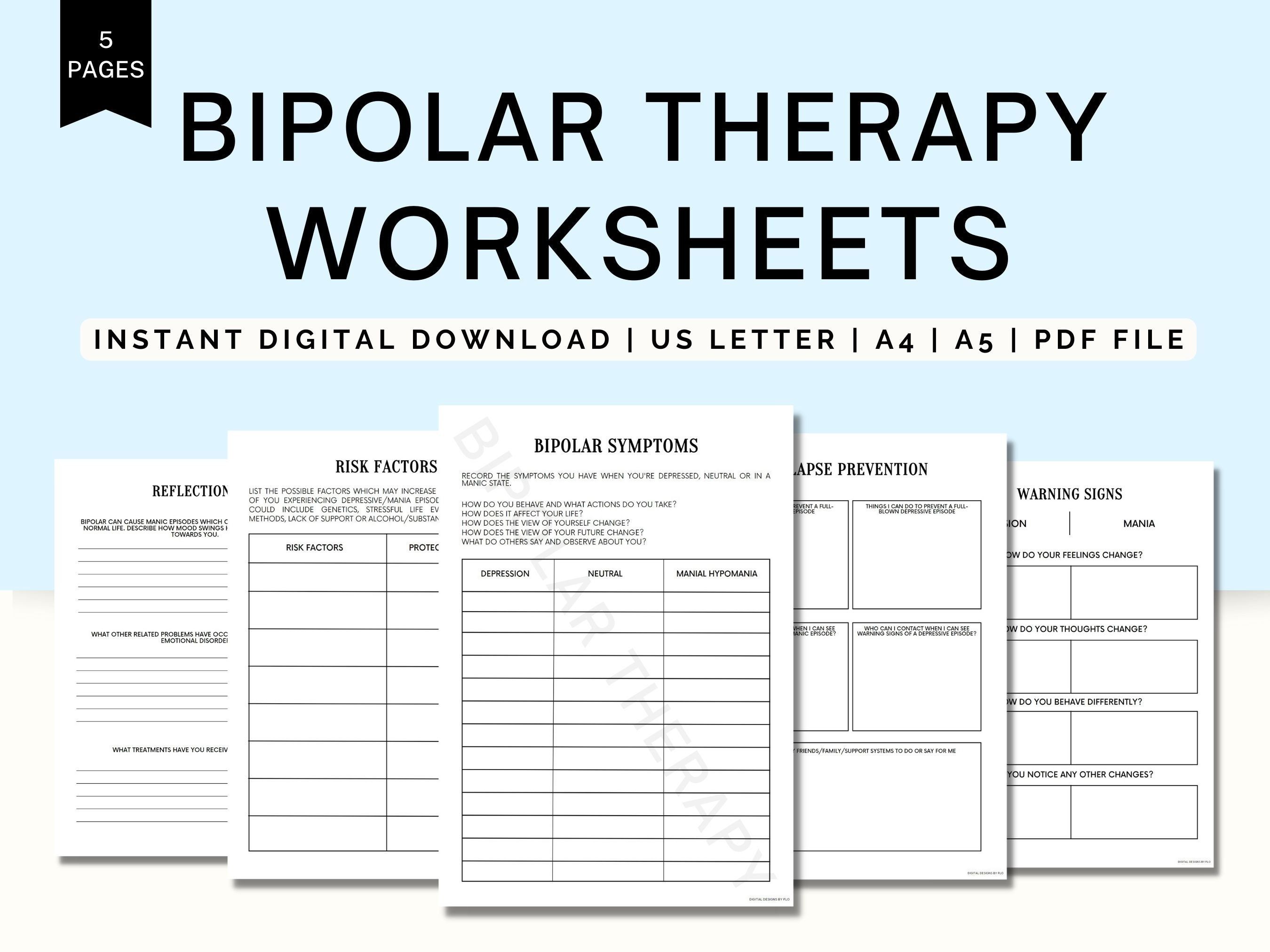
+
Yes, sharing these worksheets with your therapist can provide them with valuable insights into your symptoms and treatment effectiveness.
What if I miss filling out the worksheet for a day?

+
If you miss a day, simply resume the next day. Consistency is key, but occasional misses are understandable. Just ensure you keep the record as accurate as possible.

